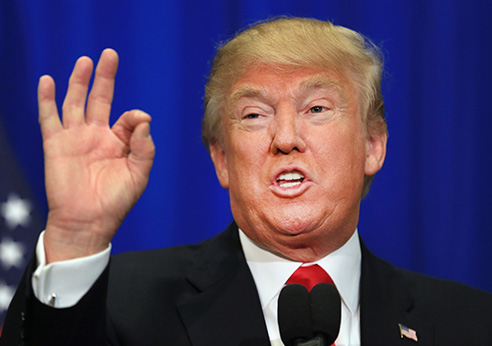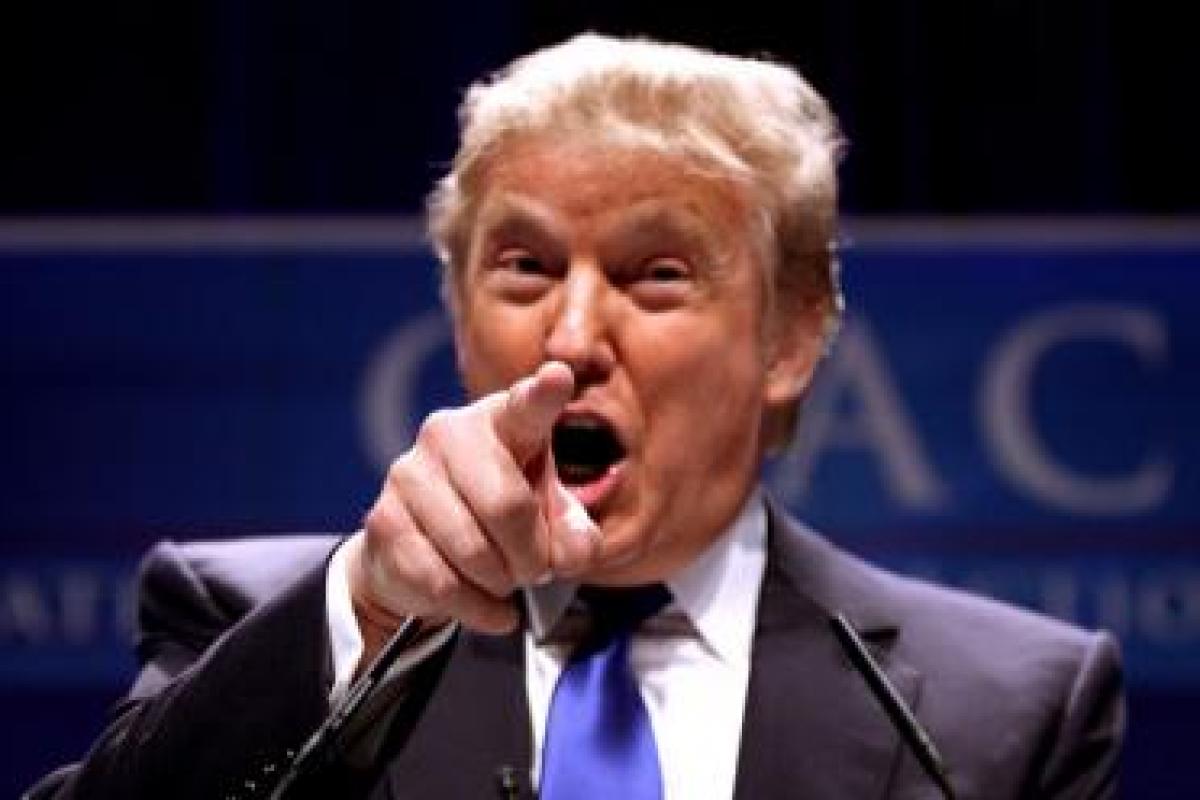Much has been written about the improbability of Donald Trump’s rise to prominence in presidential politics.
Now, people and pundits alike find themselves eating their words in astonishment as Trump stands as the presumptive nominee of the Republican Party. But why are we so surprised? Why has Trump’s success caught so many off-guard?
The conventional wisdom and 16 Republican opponents vastly misunderstood who Donald Trump really is – and always has been. Trump is far from the thoughtless carnival barker that so many want to make him out to be. He only plays that role on TV. In reality, Trump is a shrewd, strategic, and agile candidate who has demonstrated by far the most sophisticated understanding of how to dominate, control and leverage the modern communications environment. Trump has taught us at least five lessons about presidential campaigning in the post-Obama era that are pivotal to understanding both what he has accomplished and what may lie ahead.

First, straight talk is effective. Trump really didn’t teach us this – remember the glory days of John McCain’s “Straight Talk Express” – but Trump reminded us brilliantly of this important fact. People respond to Trump precisely because he isn’t message-tested; he isn’t cautious and he pretends not to care what others think. He says what’s on his mind. And he says it with a punch. Too many of today’s politicians avoid this because it involves too much risk; too great a possibility of saying the wrong thing or of committing to a principle with which some voters may not agree. Trump is concerned with none of this and he has been rewarded as a result.
Second, Twitter matters. A lot. Trump has used social media masterfully. His tweets are totally on brand. They are direct. Some are shocking. Some more are in poor taste. But it is important to understand how and why Trump tweets. He is not catering to his Twitter followers, those loyal supporters who are so eager to Make America Great Again. Rather, Trump tweets because he knows that each tweet will be amplified 1000 times over by both the elite and mainstream media, those that have real and far-reaching influence over the electorate. He tweets late at night not because he is so busy during the day but rather because Trump is a sophisticated student of the news cycle and knows that his 11:00 PM missives will lead all of the morning shows and another day of media dominance. And the more outrageous the tweet, the more complete that dominance will be. No candidate has understood the use and implications of social media better.

Third, people aspire to more than they have and to be bigger than they are. Trump flies in with the big jet and parks it in front of the cheering crowds. He talks of big business and mega-deals. He portrays a gold-leafed, fairy-tale life of which most of us can only imagine. Trump has achieved what can easily be defined as the American Dream and he reminds us of it constantly. Aspirational brands work to tap into and motivate consumers who see the brand as a way to achieve something they otherwise could not. Trump has applied this rule to political campaigns with great affect.
Fourth, substance doesn’t matter. Trump’s rhetoric has been woefully short on specifics. Trump’s lack of substance helps to make a complicated world more easily digestible and the very absence of complexity makes the product more appealing. Trump’s “pitch” doesn’t require facts. He is selling a feeling; a notion that America has lost something great and that only one man can recover it for us. It is an emotional narrative designed to appeal to an angry, disenfranchised and disaffected segment of the American people. Those Trump is trying to reach see the big jet, the beautiful family and the billionaire that made it all happen. And that’s all they need. Trump has used his brand, well honed though years of work, as proof-positive that he is the only one who can Make America Great Again. No substance required.
Perhaps the greatest and most important lesson of Trump’s success is that when people are fed up, really fed up, the rules of the game change, and not always for the better. Trump has run a campaign that is long on rhetoric and devoid of any specifics; is noteworthy because of its mean spiritedness and bigotry; has cost next to no money, and has been wildly, remarkably and phenomenally successful by any measure you can apply to it.
All elected officials on both sides of the aisle need to understand the Trump phenomenon and how it came to be. Once they do, they will see the pivotal role they played in making a Trump candidacy possible in the first place. In categories where consumers are extremely dissatisfied with all available product offerings, barriers to entry are lowered and purchase decisions may defy traditional and rational explanation. Trump has proved these rules too.
This piece first appeared on ogilvydo's site here.
